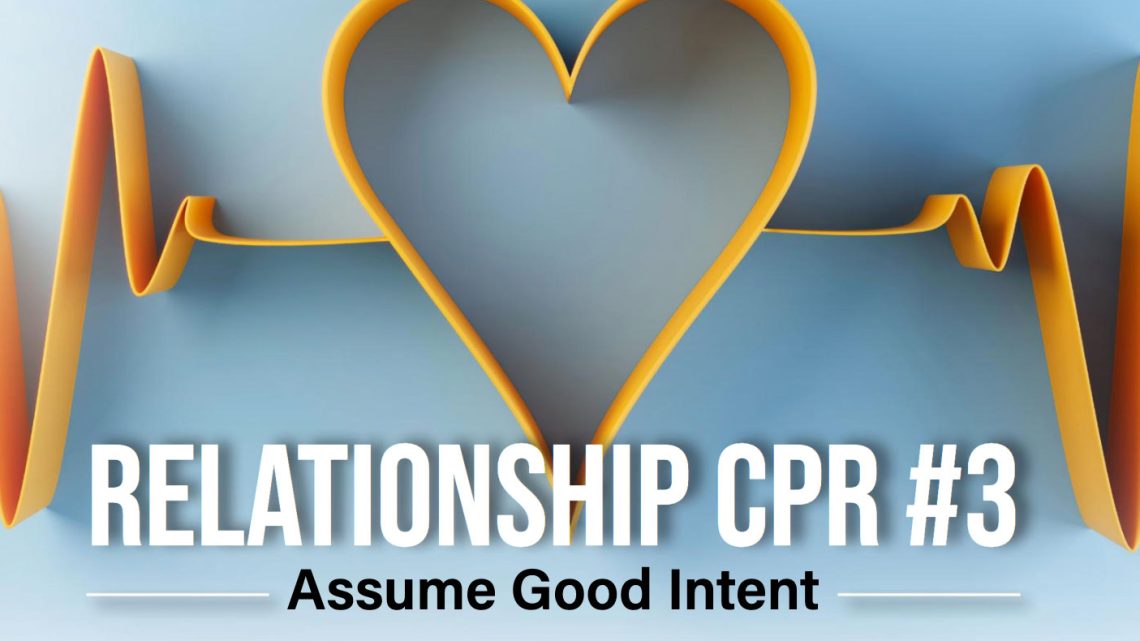What these three simple letters stand for can dramatically improve any relationship in your life. Yes, that’s a powerful statement; but I’m willing and able to back it up. As followers of Christ, we are to get along with everyone—at least as it depends on us (see Rom 12:18). The concept behind these three letters will help you do that: Assume Good Intent.
Everyone you know will occasionally do or say things you do not appreciate. So how you will respond to whatever irritant has come your way? Seek to retaliate or give back double, and the results will likely cause hardship and pain in the relationship, if not destroy it altogether. On the other hand, if you try to ignore or pretend whatever the other has done doesn’t really bother you, you better get a good supply of antacids because that approach can eat you up.
Let me propose a third option: AGI. Give the other the benefit of the doubt that he or she didn’t mean to anger or upset you. And, even if they did, they were likely having a bad day and inappropriately took out their frustrations on you.
The reasons for their inappropriate behavior or tone could be limitless, and you can do damage by trying to ascribe a motive to their actions. A quote credited to Stephen Covey I’ve long appreciated is that “we judge ourselves by our intentions and others by their behavior.” Too often we have an attitude that says, “I may have messed up, but I was well motivated, while you, on the other hand, simply messed up.”
Assuming Good Intent on the part of someone who has offended you does not mean they did not hurt you or that it’s OK for them to do it again. It simply means you acknowledge that they are no more or less perfect than you, and you attempt to give them as much benefit of the doubt and grace as you can muster. Unfortunately, we tend at times to give others the benefit of the blame.
Prov. 19:11 says, “Sensible people control their temper, they earn respect by overlooking wrongs.” That sure sounds like AGI to me. Or consider what we read in Col 3:13: “Make allowance for each other’s faults, and forgive anyone who offends you. Remember, the Lord forgave you, so you must forgive others.”
To Assume Good Intent is to ask yourself, “What’s the best possible reason he or she just treated me so negatively or inappropriately?” It’s putting yourself in their shoes for a moment instead of lashing out with a retaliatory strike. The latter may have some short term benefit, but the former will have far better long term results.
Choosing response over reaction
I guess it all depends on how much you value your relationship as to whether you decide to practice AGI or not. If you couldn’t care less about the other person, then let them have it with all the bitterness and hostility you have at your disposal. If, on the other hand, you really don’t want to have to hire and train a replacement worker or replacement mate or lose fellowship with a brother or sister, you may want to practice AGI instead.
Ken Futch, the author of Take Your Best Shot, has a marvelous way to practice AGI. When he receives a harsh or antagonistic comment from someone, he very calmly and softly says: “Well, that sounded like an attack. Is that how you meant it?” Again, please note I said in a calm and soft tone. When you do this, the other person is quite likely to respond with, “No, I’m sorry – I’m having a bad day, and I should not have taken it out on you. Please forgive me.”
Again, I must emphasize that Assuming Good Intent does not mean you become a doormat or that you place a “kick me” sign on your back. It doesn’t mean you let unacceptable behavior or performance go unabated and unaddressed. It simply means you take the time to respond appropriately and not create a conflict that might otherwise be prevented. Why not try it? Methinks you’ll like it.

Ron Price is the author of three books and creator of Play Nice in God’s Sandbox video series.








